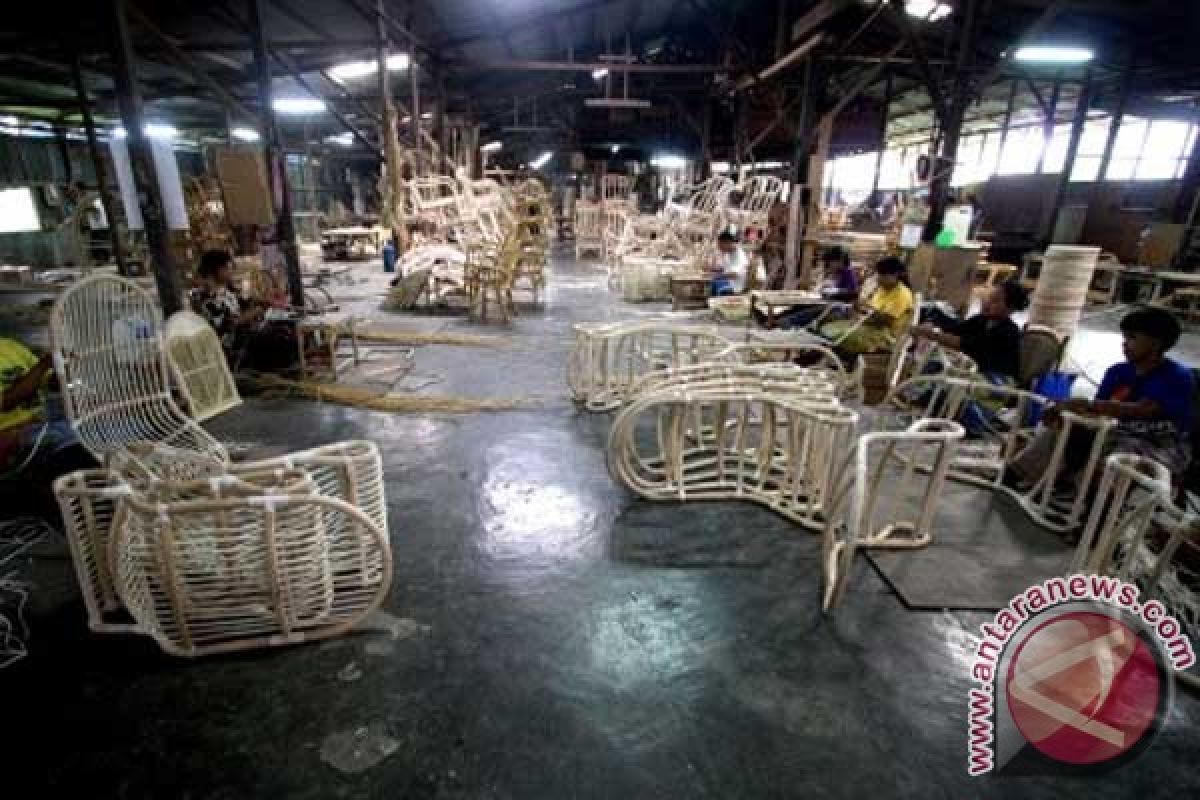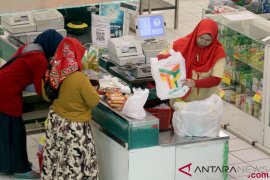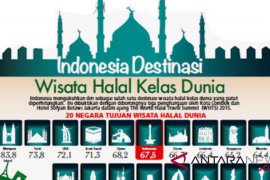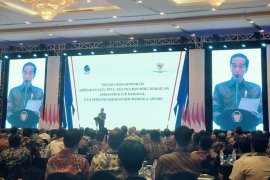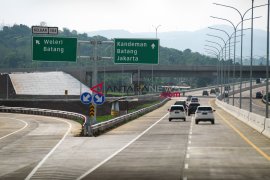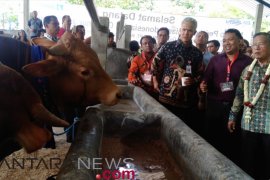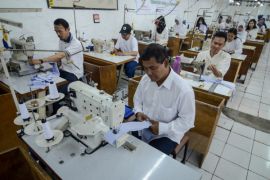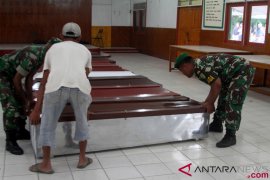"Rattan furniture industries in the region are facing difficulties in finding raw materials."Jakarta (ANTARA News) - A buffer stock, such as the state logistics board (Bulog) which collects rice, is needed to accommodate farmers` raw rattan and to ensure stocks for rattan-based manufacturing industries.
Rattan stocks have become a problem that has `pit` rattan farmers and rattan-based industries against each other over the past few years. When the government allowed the exporting of raw rattan based upon a trade minister`s decree in 2009, rattan-based manufacturing industries complained of shortages of raw materials.
An executive of the Indonesian Association of Handicraft and Furniture Industry, Asmindo, said last year that before the regulation was introduced in 2009, rattan-based product exports could reach 3,000 containers per month. But following the decree it dropped to 700 containers.
So last year the government banned the exporting of raw rattan. Trade Minister Gita Wirjawan said the reason for the export ban was to maintain the country`s rattan industry and forest resources, increase exports of rattan-made products, as well as to prevent raw rattan smuggling.
After the imposition of the ban, however, rattan farmers complained that local rattan furniture industries could not absorb all of their raw rattan products. Thus, rattan farmers collected rattan only based on demand at home. This often cause shortage of supplies.
The Indonesian Association of Handicraft and Furniture Industry has asked the government to create a rattan buffer stock to overcome raw material problems. A buffer stock could help farmers by accommodating their rattan, while industries could be ensured raw material supplies from the stocks.
"Rattan furniture industries in the region are facing difficulties in finding raw materials. Raw rattan exports are not allowed, so rattan collectors only gather rattan based on demand at home. This causes the industry to lack raw rattan," Asmindo Chairman Ambar Tjahyono noted.
Tjahjono said he hoped the government would set up a buffer stock agency, such as the logistics board, or `bulog`, to collect rattan from farmers and sell it to local industries.
But, instead of creating a buffer stock, the trade ministry opted to ask farmers to store their raw rattan in warehouses where they could receive warehouse receipts to assist them with their financing problems.
"The government has the instrument to help farmers and collectors obtain funds through providing warehouse receipts, but newly cut rattan could not be put in the warehouse before it was first processed to have its quality improved," Mardjoko, the director general of external trade affairs of the ministry of trade, said on Friday.
The director general responded to a proposal by the Indonesian Handicraft and Furniture Industry Association (Asmindo) that a buffer stock should be formed to accommodate the farmers` rattan.
Asmindo asked for the establishment of buffer stocks in an effort to overcome the problem of shortages of raw rattan material. Observers noted that they should not merely provide warehouses where farmers could store their raw rattan and obtain warehouse receipts.
Mardjoko said that the establishment of a buffer stock would need a large amount of funds. "The government will need a large fund to establish a buffer stock. We cannot immediately have funds to form a buffer stock because we should first propose it through the state budget. Deliberations of a state budget draft at the ministry of trade, the ministry of finance and the House of Representatives (DPR) will take a long time," Mardjoko explained.
Regarding the funds for establishing a buffer stock, Ambar Tjahoyono said it was not a significant problem. "The budget needed to set up a buffer stock is only about Rp75 billion, and that amount is not something big. We are ready to bear some of such a fund. The important thing is that industry would not face difficulties in obtaining raw materials," Ambar said.
He noted that the government should provide concrete action for upstream industries, so that downstream industries would also develop well. "Actually, Asmindo supported the ban of raw rattan, but the government must apply a new strategy so that industries would not run short of raw materials," he asserted.
Asmindo has proposed to the DPR`s Commission VI on industry and trade affairs the establishment of the buffer stock. It should be set up in Java because downstream industries are mostly operating in Java, he noted.
It seems, however, that the government is offering the warehouse scheme, or even setting up cooperatives. For this, the trade ministry is planning to form cooperatives in the regions that would function as a collecting agency and provide financing for farmers.
Head of Goods and Services Market of the Future Commodity Trade Supervision of the Trade Ministry, Ismadjaja Toengkagie, said cooperatives in the regions would be established to purchase farmers` raw rattan.
Rattan will have its quality upgraded at the cooperatives before it is stored at warehouses.
"Admittedly, that rattan meets several requirements, but collectors or farmers could not directly store their rattan in warehouses to get receipts because an SNI standard for rattan must be set first," he said.
Ismadjaja Toengkagie said commodities that deserve warehouse receipts were those that met five requirements.
"First, durable commodities that could be stored for at least three months; second, their prices fluctuate, which fall during harvest times and rise during famine; third, commodities with quality matching the Indonesian Quality Standard (SNI); fourth, regular information on their prices is always available; and fifth, they are strategic commodities for home consumption or for exports," Ismadjaja said.
Indonesia`s rattan furniture exports in 2009 stood at 37.1 million dollars and dropped to 26.3 million dollars in 2010, but rose to 31 million dollars in 2011.
(T.A014/INE/KR-BSR)
Reporter: by Andi Abdussalam
Editor: Priyambodo RH
Copyright © ANTARA 2012
